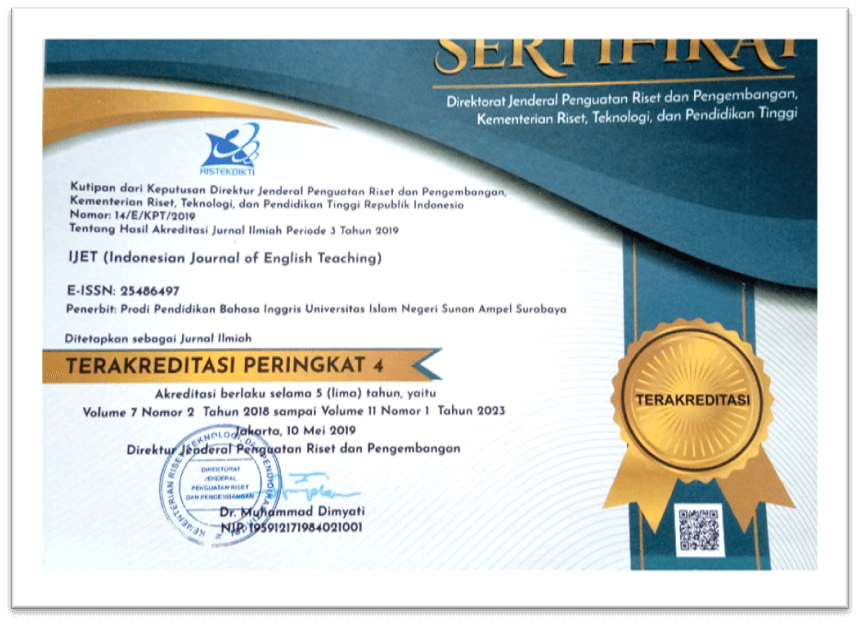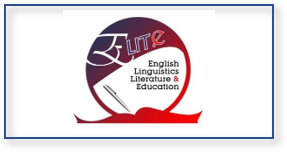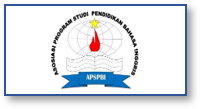Factors Influencing Students’ Well-being on Educational Outcomes in the Indonesian Railway Polytechnic
DOI:
https://doi.org/10.15642/ijet2.2021.10.2.136-147Keywords:
Students’ Well-being, Academic Outcomes, Factors influencing, Indonesian Railway PolytechnicAbstract
Students’ well-being among Indonesian scholars might be still unpopular as this topic could lead to a blundered result in a certain area of disciplines. Yet, this topic is essential to reveal as it can be one of the indicators which can be taken into account on measuring the workload of students enrolling in this state-owned institution. Not only that, but this also might be an eminent output indicator for the quality of education specifically on educational outcomes. The instruments occupied in this study were interviews and surveys. Students and alumni of the polytechnic were asked to participate in this study and several key figures as well. This study applied a mixed-method research design, which is commonly accepted as there are both qualitative and quantitative parts combined in the study. The results showed that the quality of student well-being in an emotional, social, and school dimension of student PPIM is relatively at a good level. Hence, with the tight schedule and tough physical activity, the institution should pay attention to a psychological aspect.
Downloads
References
Abd Majid, M. Z., Hussin, M., Norman, M. H., & Kasavan, S. (2020). The employability skills among students of Public Higher Education Institution in Malaysia. Geografia-Malaysian Journal of Society and Space, 16(1).
Arslan, G. and M. Co?kun (2020). Student subjective wellbeing, school functioning, and psychological adjustment in high school adolescents: A latent variable analysis. Journal of Positive School Psychology 4(2): 153-164
Boahin, P., & Hofman, A. (2013). A disciplinary perspective of competency-based training on the acquisition of employability skills. Journal of Vocational Education & Training, 65(3), 385-401.
Borgonovi, F. and J. Pál (2016). A framework for the analysis of student well-being in the PISA 2015 study: Being 15 in 2015.
Dacey, J. S., et al. (2016). Your Child's Social and Emotional Well-being: A Complete Guide for Parents and Those who Help Them, John Wiley & Sons.
Flinchbaugh, C. L., et al. (2012). Student well-being interventions: The effects of stress management techniques and gratitude journaling in the management education classroom. Journal of Management Education 36(2): 191-219.
Govorova, E., et al. (2020). How schools affect student well-being: a cross-cultural approach in 35 OECD countries. Frontiers in psychology 11: 431.
Gutman, L.M., Brown, J., Akerman, R., & Obolenskaya, P. (2009). Well-being from childhood to adolescence: risk and protective factors. London: DCSF.
Gutman, L.M. & Feinstein, L. (2008). Pupil and school effects on children's well-being. London: DCSF.
Hagenauer, G., & Hascher, T. (2014). Early adolescents' enjoyment in learning situations at school and its relation to student achievement. Journal of Education and Training Studies, 2(2), 20–30. http://dx.doi.org/10.11114/jets.v2i2.254.
Holmes, L. (2013). Competing perspectives on graduate employability: possession, position or process?. Studies in higher education, 38(4), 538-554.
Konu, A. and M. Rimpelä (2002). Well-being in schools: a conceptual model. Health promotion international 17(1): 79-87.
Merriam, S. B. (1988). Case study research in education: A qualitative approach. San Francisco: Jossey-Bass.
Morse, J. M., & Chung, S. E. (2003). Toward holism: The significance of methodological pluralism. International Journal of Qualitative Methods, 2(3), 13-20.
Nazir,M. (2005).” Metode Penelitian.”Bogor: Ghalia Indonesia
OECD (2015). Skills for Social Progress.
OECD (2017). PISA 2015 Results (Volume III).
Purtaghi, G., & Pakpour, A. (2014). Happiness, self-efficacy and academic achievement among students of baqiyatallah university of medical sciences. Journal of medical education development, 7(13), 45-56.
Pollard, E. L. and P. D. Lee (2003). Child well-being: A systematic review of the literature.Social indicators research 61(1): 59-78.
Putri, S., et al. (2019). Subjective well-being berhubungan dengan prestasi akademik mahasiswa program studi ilmu keperawatan. Jurnal Keperawatan 11(4): 243-250.
Quinn, P. D., & Duckworth, A. L. (2007). Happiness and academic achievement: Evidence for reciprocal causality. In The Annual Meeting of the American Psychological Society (Vol. 24, No. 27.5, p. 2007).
Schulze, S. (2003). Views on the combination of quantitative and qualitative research approaches. Progressio, 25(2), 8-20.
Schutte, N. S., et al. (2002). Characteristic emotional intelligence and emotional well-being. Cognition & Emotion 16(6): 769-785.
Stake, R. E. (1995). The art of case study research. Thousand Oaks: Sage Publications.
Tabbodi, M., Rahgozar, H., & Makki Abadi, M. M. (2015). The relationship between happiness and academic achievements. European Online Journal of Natural and Social Sciences: Proceedings, 4(1 (s)), pp-241.
Terrell, S. R. (2012). Mixed-methods research methodologies. The qualitative report, 17(1), 254-280.
Tian, L., et al. (2015). Development and validation of the brief adolescents’ subjective well-being in school scale (BASWBSS). Social indicators research 120(2): 615-634.
Wright, B., & Schwager, P. H. (2008). Online survey research: can response factors be improved?. Journal of Internet Commerce, 7(2), 253-269.
Yang, Q., et al. (2019). Relations among academic achievement, self-esteem, and subjective well-being in school among elementary school students: A longitudinal mediation model. School Psychology 34(3): 328.
Yin, R. K. (2003). Case study research: Design and methods. Thousand Oaks, Calif: Sage Publications.
You, S., et al. (2014). Further validation of the Social and Emotional Health Survey for high school students. Applied Research in quality of life 9(4): 997-1015.
Yusof, N., & Jamaluddin, Z. (2017). Graduate employability and preparedness: A case study of University of Malaysia Perlis (UNIMAP), Malaysia. Geografia-Malaysian Journal of Society and Space, 11(11).
Zhang, D. C. and T. L. Renshaw (2020). Personality and college student subjective wellbeing: A domain-specific approach. Journal of Happiness Studies 21(3): 997-1014.










